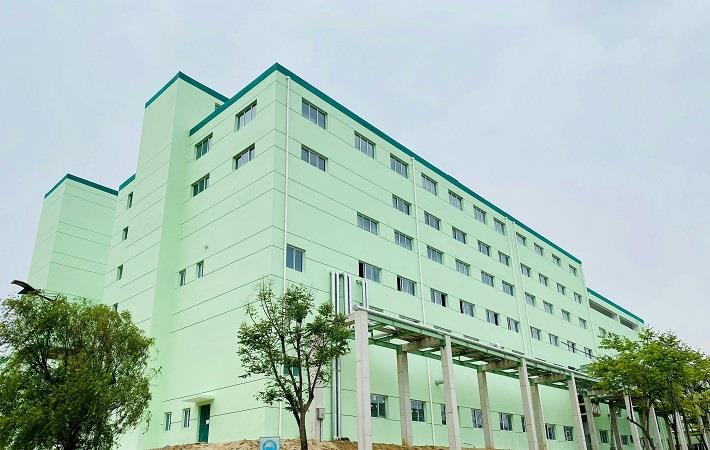
It features a 5,000 ton per annum Lyocell production line dedicated for pilot trials, and other state-of-the-art equipment imported from US and Austria.
The centre’s activities will focus initially on laboratory tests for pulp selection, new and differentiated fibre product development, and quality and productivity improvements in Lyocell production. The centre is also poised to explore frontier next-generation textile fibre solutions and other related downstream innovation in the near future.
About 150 staff members will be involved in the centre’s work. These include R&D scientists, professionals with material science and chemical engineering expertise, and specialists in fibre technical, production and operations.
“My team and I are proud to be part of Sateri’s first major R&D Innovation Centre that consolidates our various competencies in one location. This facility will be the lynchpin of our innovation efforts. We are eager to achieve breakthroughs that will not only enhance Sateri’s existing products but also advance solutions in alternative cellulosic feedstock and closed-loop manufacturing. The company’s investment in this centre is founded on a strong culture of continuous improvement and part of its longterm commitment to create value,” said Tu Jian Zhong, head of the centre.
The centre recently hosted a visit by the vice governor of Shandong Province, Sun Ji Ye. Sun lauded the benefits of Lyocell fibre as a sustainable material for use in high-end fabrics, medical and other consumer products, and urged companies to leverage on technology to create value-added products to bolster China’s economic development.
Sateri is part of the RGE group of companies which has committed to investing $200 million to advance next-generation textile fibre innovation and technology. In addition to Lyocell, Sateri’s other environmentally sustainable products introduced this year include Finex, made from recycled textile waste, and StretchCosy in partnership with DuPont Sorona.
Sateri is the world’s largest producer of viscose fibre, a natural and sustainable raw material found in everyday items like textiles, baby wipes and personal hygiene products. Its range of high-quality viscose products is independently verified as safe and responsibly produced. Its five mills in China collectively produce about 1.4 million metric tonnes of viscose fibre yearly. It also operates a yarn spinning mill and 20,000-ton Lyocell facility. Headquartered in Shanghai, Sateri is strategically positioned to serve the China market which is the world’s largest and fastest growing market for viscose fibre.
Fibre2Fashion News Desk (PC)